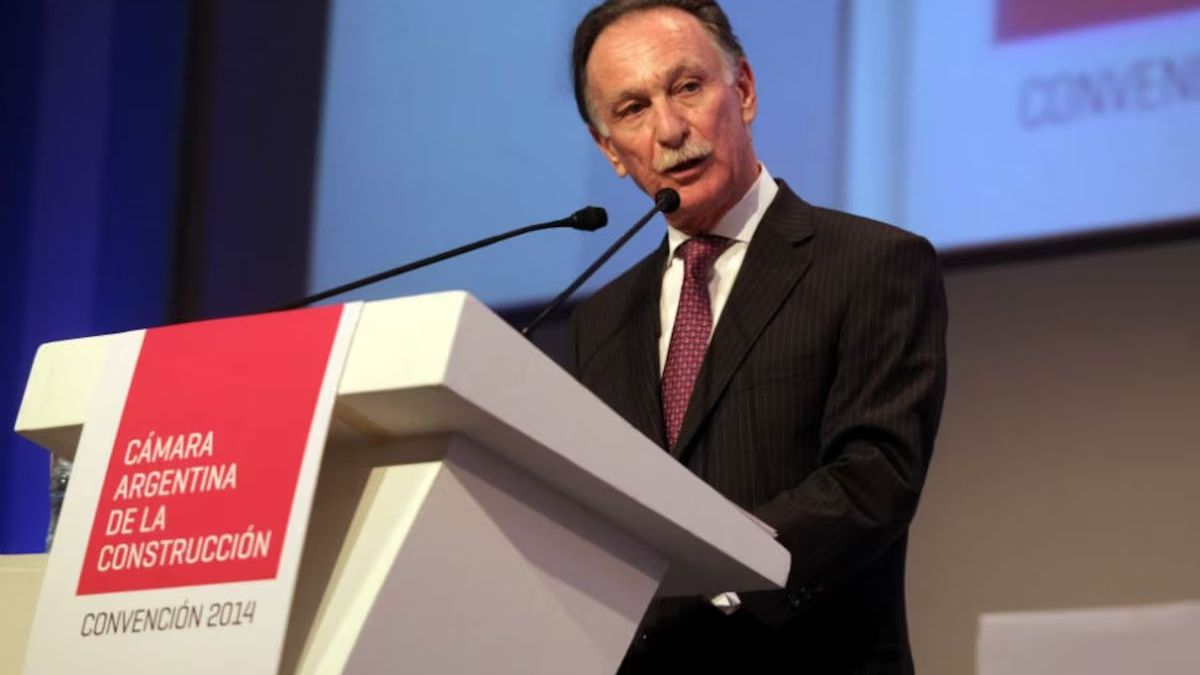The public work The country has been going through a crucial moment for several months: high inflation, the impossibility of re-determining costs at current prices, and delays in approving works threaten to lead large, medium-sized, and small companies in the sector to a dead end. exit.
In an interview with journalist Carlos Pagura, from C5N.com, the president of the Argentine Chamber of Construction (Camarco), Gustavo Weiss, He explained the main problems that the sector is going through, in a combo that combines an accelerated increase in the prices of inputs, waiting up to 10 months to collect contracts and the indebtedness of companies at high rates to continue operating.
“All part of the shortage of money from the national and provincial governments, the problems in price redeterminations and the delays of months in approvals. Even making monthly updates is not enough, because the formula does not represent reality. Contracts like this are unfeasible,” he described.
A worrisome scenario and a future that, given the lack of “cash” of the State, appears with few solutions in sight and could lead to the total stoppage of works and massive layoffs, in a sector that employs a universe of one million and a half people.
Journalist: What is the main impact of inflation?
Gustavo Weiss: The public works industry is the only one that puts a price on contracts today and delivers the product in 1, 2 or 5 years. In an inflationary economy, the only way to try to maintain contract value is with a repricing formula. Because when quoting a work, the price of today’s cement, of today’s brick, is taken into account, and when they are bought or paid for labor in a year’s time, the prices are different. It is a formula that works reasonably well with 20 or 30 percent annual inflation, but works poorly in times of high inflation. But the formula also has an additional problem and that is that it takes a while, depending on the circumstances and the type of work, and the process can last four, five or ten months. So if for them to recognize the value of the brick I bought today it takes 10 months for me to invoice and collect it, it becomes totally unfeasible. The paperwork and the delays in the approvals destroy the economy of the contract.
Q: Which works are the most affected?
GW: The national government has direct works and others by agreement with municipalities and provinces, in which case they carry out the tenders, the contract is signed with them and the money is sent by the Nation. In these cases, there are more bureaucratic problems in approving redeterminations because more than one jurisdiction is involved. On the contrary, the works of multilateral credit organizations, such as the World Bank, are much better off. Fundamentally because a part of the money is put by the Government but most of those organizations, which have another “piggy bank”.
Q: When did the problem start to get worse?
GW: It began to gradually worsen since the middle of last year. Until then the flow of money was uninterrupted, we were paid well and inflation was lower. There were problems but they were minor, sometimes they even paid us before the invoices were due. But since the middle of last year, and especially at the beginning of this year, inflation has skyrocketed even more and the cash flow problem has increased. Then the price redetermination problems worsened and the flow of payments began to have delays. It must be borne in mind that with a delay of one month, with this inflation it means a loss of 8 or 9 points.
Q: Is there any kind of compensation for delays?
GW: No, because for decades governments have institutionalized not paying interest as normal, despite the fact that the Public Works Law establishes that compensatory interest must be paid when there are delays. If a company is paid 30 days late, they are taking 8 or 9 percent of the invoice and 18 percent after 60 days. Thus the works become unfeasible.
Q: What types of companies are most affected?
GW: Everyone, this hits companies big and small. The vast majority of companies in the interior are SMEs and are affected by the additional problem of processing redeterminations in the jurisdictions, because most of their works are by agreement in the interior of the country. SMEs are very committed.
Q: Do you speak with the Government?
GW: Yes, we have a perfect dialogue with the Minister of Economy, with the Minister of Public Works, of Transportation. They understand the situation. I also want to clarify that there is a very important plan, the Government put a strong imprint on it and many public works contracts were signed. But it is true that the problems are what they are and the situation is complex beyond the good will of the Government to solve it.
Q: Is there a short term solution?
GW: If the Government wanted to, the most viable would be to pay 90% when the calculation with the formula is presented and leave 10% to collect when it is approved, that would greatly expedite the problem of paying redeterminations. Although it is clear that it would only be a palliative, the general problem is high inflation, shortages and increases in inputs, and cash problems. It is difficult to think of this being solved in the short term, the ideal would be for the macroeconomy to stabilize and the entire system to speed up, but it will not be easy to achieve.
Q: How are likely cost increases estimated?
GW: When a work is quoted, the future projection of the increases is analyzed, but nobody anticipated this strong rise in inflation. In fact, there was an idea in the middle of last year that it could go down, there was even a risk that it could be 3% per month, and now we are on our way to triple that. It is very difficult to project the future.
Q: Could the outlook get worse?
GW: There are many companies that are very committed because in their eagerness to continue the works they become indebted to the financial system at high rates, they become indebted to suppliers, and they begin to be in arrears in their payments or in taxes or social charges. If this is not resolved quickly, many companies will be in serious trouble, as has happened on other occasions. It is a sector with almost 450,000 UOCRA employees; if we add the administrative, technical and professional staff, there are about 540,000, and if we take into account the suppliers that produce material for the industry, it is a universe of one and a half million people.
Q: Is this moment an extra challenge in your role as president of the House?
GW: It is a serious moment. The main companies in the industry express their concern to me every day, and although the institution is really very committed to the issues, in this context we sometimes have few tools to provide solutions.
Source: Ambito




